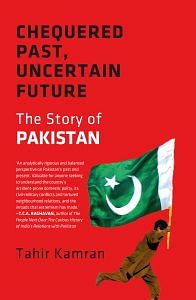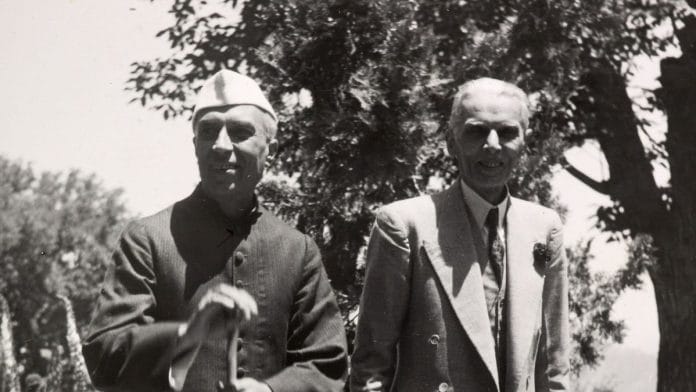Muhammad Ali Jinnah’s demand for Pakistan was not a bargaining chip in the constitutional struggle, as some British authorities and more recently Ayesha Jalal have claimed. Rather, he had firmly committed himself to Pakistan, as noted by Stanley Wolpert, and closed the door on any prospects of a united India. Jinnah had transformed himself into Pakistan’s great leader, and there was no going back.
The enigma of Jinnah’s transformation from an advocate of Hindu– Muslim unity and an Indian nationalist to a proponent of Pakistan as a separate nation state raises questions. What led to this drastic shift in his thinking and approach to India’s communal-constitutional problem? Multiple factors contributed to this transformation, and although they shall be discussed here separately, they often interconnect and overlap.
Muslims and Hindus, although living in close proximity to each other in cities and villages, remained largely separate. The Hindu caste system discouraged natural ties of the neighbourhood or locality, and each community had its own culture, traditions and norms that were irreconcilable. Even past attempts by Muslim rulers, such as Emperor Akbar’s ‘synthesis’, failed to bridge the gap. After the fall of the Mughal Empire and the arrival of the British, these sociocultural divisions became increasingly hostile, which led to significant conflict during British rule.
Jinnah believed that the British introduction of representative government in India labelled the Muslims as a minority community and subordinated their communal interests to national interests. In a 1940 article for the magazine Time and Tide, he made it clear that the Muslim League was opposed to federal objectives that would lead to majority communal rule disguised as democracy. However, the system of representative government made majority communal rule inevitable, which went against the Muslim League’s objectives. Initially, the British were hesitant to introduce representative government, and Lord Curzon ruled out representative institutions in India during a debate on the Indian Councils Bill of 1892, claiming that it was ‘alien to the Indian mind’. The British rulers acknowledged the significant socio-religious differences between Muslims and Hindus, and recognized that at play was not merely a difference in faith but something that encompassed all aspects of social life, tradition and history, that is, communal tethers. This realization prompted the Act of 1909, which provided separate electorates for the Muslims.
Initially, Jinnah was against separate electorates, but he eventually realized that the Muslim community’s interests needed protection in a system based on numbers, which would favour the Hindu majority. The Congress agreed to separate electorates in 1916, but they reneged when India received its first measure of transfer of power in 1919. The Nehru Report of 1928 rejected the principle of separate electorates and called for joint mixed electorates. Despite Jinnah’s efforts to persuade the Congress (and the Hindu Mahasabha) to help ‘seven crores of Mussalmans to march along with us in the struggle for freedom’, he was unsuccessful.
Also read: Vajpayee had one question after IC 814 crisis—Why wasn’t the plane grounded in Amritsar?
Jinnah’s ‘Fourteen Points’ demanded separate electorates and a federal Constitution with residuary powers vested in the provinces to protect Muslim-majority provinces against Hindu domination. Despite Mohan Das Karamchand Gandhi’s promise of representations for the rights of the minorities (specifically of the Muslims) at the Round Table Conference in 1931, Jinnah and the Muslims were not satisfied and felt compelled to demand a separate state, especially after the distressing Congress rule of the provinces from 1937 to 1939.
Jinnah attempted to reconcile with the Congress in the 1936–7 elections, aiming to unite for India’s freedom. However, Nehru, the newly elected inc president, rejected the idea and refused to acknowledge the Muslim League as a political party. Despite Jinnah’s attempts to form a coalition government in the up Assembly, Nehru’s arrogance cost both parties and led to the League’s resurgence. Congress rule, with policies such as the Wardha Scheme and Vande Mataram, confirmed to Muslims that a ‘Hindu raj’ had arrived before a British departure. The Wardha Scheme, also known as the Basic Education Scheme, was a proposal for educational reform in India put forward by Mahatma Gandhi in the 1930s. Its nature was rooted in the principles of basic education and self-reliance. The scheme aimed to provide education that was more practical, relevant to the needs of rural India, and focused on character-building and vocational skills. It advocated the use of indigenous languages and crafts in education, emphasizing the development of a strong moral and ethical foundation in students. The scheme was inspired by Gandhi’s belief in the importance of integrating traditional Indian values and culture into education.
‘Vande Mataram’ is a patriotic slogan and song that was popularized during the Indian freedom struggle. Its literal English translation is ‘I praise thee, Mother.’ The phrase has Hindu connotations because it is taken from Bankim Chandra Chatterjee’s novel Anandamath, where it is used in the context of worshipping the Motherland as a deity. In this sense, it can be seen as an expression of reverence for the land of India, which has a spiritual and cultural significance in Hinduism. During the freedom movement, ‘Vande Mataram’ became a rallying cry for Indian nationalists, including those of Hindu background, who viewed India’s struggle for independence as a sacred mission. That obviously made Muslims uncomfortable.
Jinnah sought Gandhi’s involvement but was met with disdain; he had no choice but to break ties with Congress and Indian nationalism.6 In 1916 Jinnah was a prominent leader among both Hindus and Muslims, but Gandhi’s non-cooperation movement in 1920 weakened his position. The non-cooperation movement was a peaceful protest against British colonial rule in India. It involved Indians refusing to cooperate with British authorities, boycotting British goods and engaging in acts of civil disobedience to demand independence. Jinnah, as a constitutionalist, opposed the movement and left the Congress to focus on the Muslim League. Despite attempts to find common ground, such as the Delhi Muslim Proposal and the Fourteen Points, he was unsuccessful in accommodating Muslim interests within the Congress.
The Round Table Conference in London failed to produce any meaningful results as Gandhi, the Congress’s sole representative, refused to cooperate. Even during Jinnah’s self-imposed exile in London from 1931 to 1935, he persisted in trying to resolve the Hindu–Muslim issue, but Nehru’s indifference and hostility thwarted his efforts. According to the Indian scholar and lawyer A. G. Noorani, Nehru’s treatment of Jinnah was unbecoming of a political leader and driven by a dislike that bordered on hate. Gandhi’s condescending attitude towards Jinnah also contributed to the latter’s eventual split with the Congress. These slights, neglect and perceived anti-Muslim sentiment all contributed to Jinnah’s transformation and his eventual leadership of the Muslim separatist movement. It is apt now to look at the Swadeshi movement and its peculiar trajectory, and the development of communal antagonism in Indian politics.
 This excerpt from Tahir Kamran’s ‘Chequered Past, Uncertain Future: The History of Pakistan’ has been published with Speaking Tiger Books permission.
This excerpt from Tahir Kamran’s ‘Chequered Past, Uncertain Future: The History of Pakistan’ has been published with Speaking Tiger Books permission.






